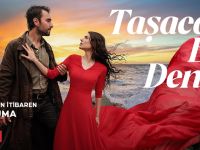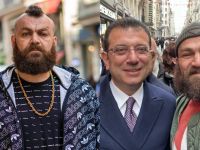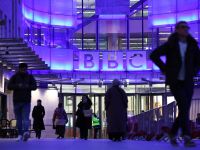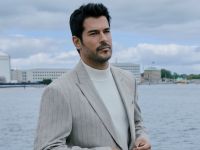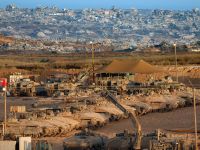The Muslim Brotherhood may be officially banned in Egypt but its members are trying hard not to fit the image of fearsome fanatics intolerant of other religions and Westerners.
In a Sheraton hotel in the wealthy suburb of Heliopolis on Sunday, Brotherhood members wearing sober business suits sat around the table for a traditional Muslim Iftar meal with Egptian Christian clerics and foreigners.
They were projecting the image of mainstream respectability they had won at the polls in last month's elections to a new parliament which opens for its first session on Wednesday.
Their Iftar meal -- which Muslims share after a dawn-to-dusk fast during the holy month of Ramadan -- sought to show they are ready to do business and mix with all strata of society.
Indeed, Arabic copies of speeches and English translations of them were distributed to all the guests, one of many signs of the group's high level of organization.
And among their 400 guests were officials from competing opposition parties such as the Arab Socialist Nasserites, democracy activist Saad Eddin Ibrahim, two Coptic Christian priests, and foreign and Egyptian journalists.
A handful of women were also present but mainly huddled together.
The social mix reflected a commitment to multiparty politics announced by Muslim Brotherhood leaders after independent candidates the group backed won 17 of parliament's 454 seats in elections that ended in November.
The results make the Brotherhood the largest opposition force in the people's assembly, which is still overwhelmingly dominated by President Hosni Mubarak's National Democratic Party.
"There must be freedom and the people must be able to participate in political life," Brotherhood spokesman Maamun al-Hodeibi told AFP after final results were announced on November 15.
"Not just freedom for the Islamists, but freedom for everyone," he said.
Ibrahim believes the Brotherhood is sincere in its newfound liberal agenda, recalling how the organization last month supported a winning Coptic Christian candidate against one from the NDP.
But the Brotherhood is clearly regarded with suspicion by the authorities who have accused them of having links to Islamic militant groups and doubt their professed claims to nonviolence.
Four days after the election results were announced, 15 Brotherhood trade unionists were sentenced to prison for belonging to an illegal organization.
And plain-clothes security men scrutinized arrivals to the Iftar.
The movement's leader Mustafa Mashhur also made some tough remarks against not only Israel, which government officials also express at times, but also against the United States, Egypt's main foreign ally and benefactor.
In his speech, Mashhur called for support of the Palestinian uprising and a "political, economic and cultural boycott of Israel."
The boycott must include a "similar boycott of the United States so that it abandons its unjust and biased policies," he said.
"The people must be allowed to express their anger against the United States," he added.
"We must look for all means of empowerment: faith, unity, solidarity and the powers of economics, finance, knowledge, media and arms, including those of mass destruction," Mashhur said.
"We must be in a position to dissuade aggressors who may use or threaten to use such weapons," he said.
Israel is accused of having an undeclared nuclear arsenal.
He also called for legalizing the movement, which has recently put its priority on political reform rather than on its traditional goal of setting up an Islamist state -- CAIRO (AFP)
© 2000 Al Bawaba (www.albawaba.com)



